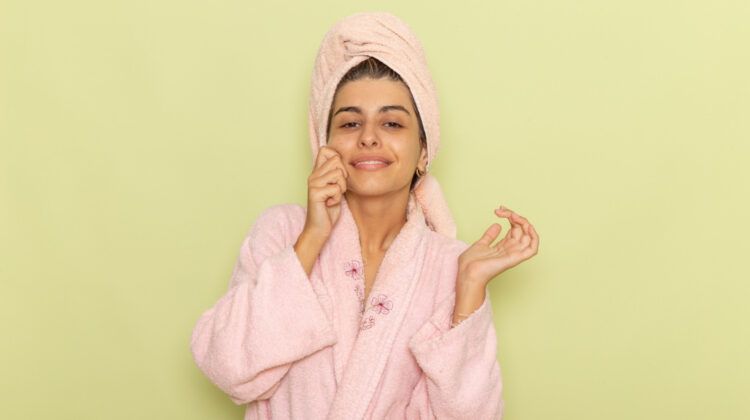Discover the Truth About Biggest Skin Care Myths

Skincare is an essential part of our daily routine, but with the abundance of information available, it is easy to fall prey to skincare myths that can do more harm than good. From misconceptions about sun protection to misguided beliefs about oily skin, several common skincare myths need to be debunked. In this article, we will explore and debunk four of the biggest skincare myths, providing you with accurate information to help you make informed decisions about your skincare routine.
Myth 1: Higher SPF (Sun Protection Factor) Offers Better Sun Protection
One of the most persistent myths surrounding skincare is that a higher SPF (Sun Protection Factor) in sunscreen offers better sun protection. While it is true that SPF is an important factor in sun protection, the relationship between SPF and the level of protection is not as straightforward as it may seem. SPF primarily measures the protection against UVB rays, which are responsible for causing sunburn. However, UVA rays, which penetrate deeper into the skin and contribute to premature aging and skin cancer, are not adequately measured by SPF alone.
It is crucial to understand that the SPF number indicates the length of time you can stay in the sun without getting burned compared to the time it takes for your skin to burn without protection. For example, an SPF 30 sunscreen allows you to stay in the sun 30 times longer than if you were not wearing any protection. However, this does not mean that an SPF 50 sunscreen offers double the protection of SPF 25. The difference in protection between SPF 30 and SPF 50 is only marginal, with SPF 30 blocking around 97% of UVB rays and SPF 50 blocking approximately 98%.
To ensure comprehensive sun protection, it is essential to choose a broad-spectrum sunscreen that shields against both UVA and UVB rays. Look for ingredients such as zinc oxide or titanium dioxide, which offer effective protection against UVA rays. Additionally, regardless of the SPF, it is crucial to apply sunscreen generously and frequently, especially when spending extended periods outdoors or engaging in water activities.
Myth 2: You Should Skip Moisturizers If You Have Oily Skin
Many individuals with oily skin tend to believe that moisturizers should be avoided to prevent exacerbating oiliness. However, this is a myth that can lead to an imbalance in the skin’s natural moisture levels. Oily skin can still benefit from the use of moisturizers.
Moisturizers play a crucial role in maintaining the skin’s barrier function, preventing moisture loss, and keeping the skin hydrated. When oily skin lacks moisture, it compensates by producing even more oil, leading to a vicious cycle of excess oiliness. By incorporating a lightweight, oil-free moisturizer into your skincare routine, you can help balance the skin’s moisture levels and reduce the production of excess oil.
Look for moisturizers specifically formulated for oily or combination skin, which are lightweight and non-comedogenic. These products are designed to hydrate the skin without clogging the pores or leaving a greasy residue. Opting for gel or water-based moisturizers can provide the necessary hydration without adding extra oil to the skin.
Myth 3: The More You Wash Your Oily Skin, The Better
Another common myth is that washing oily skin frequently and vigorously will help control oil production and prevent breakouts. However, excessive washing can have the opposite effect, leading to various skin issues.
When you over-cleanse oily skin, it can strip away the natural oils that provide protection and moisture, triggering the skin to produce even more oil to compensate for the loss. This excessive oil production can lead to clogged pores, acne breakouts, and inflammation. Additionally, harsh cleansers or scrubbing brushes can cause irritation and damage to the skin’s barrier, exacerbating oiliness and sensitivity.
Instead of over-washing, focus on using a gentle, pH-balanced cleanser twice a day – once in the morning and once in the evening. Look for cleansers that are specifically formulated for oily or acne-prone skin, as they often contain ingredients like salicylic acid or benzoyl peroxide, which help regulate oil production and unclog pores. Remember to be gentle when cleansing, avoiding excessive scrubbing or harsh movements that can disrupt the skin’s natural balance.
Myth 4: Only Anti-Ageing Products Can Erase All Signs of Ageing
The belief that only anti-aging products can eliminate all signs of aging is a myth that often leads to confusion and unrealistic expectations. While anti-aging products can be beneficial in reducing the appearance of fine lines, wrinkles, and age spots, they cannot entirely erase the natural signs of aging.
It is important to understand that aging is a natural process that affects everyone, and there is no magical product that can turn back the clock completely. Instead of solely relying on anti-aging products, it is more effective to adopt a comprehensive approach to skincare that includes sun protection, a healthy lifestyle, and a consistent skincare routine.
Sun protection plays a crucial role in preventing premature aging. As mentioned earlier, broad-spectrum sunscreen is essential to shield the skin from the damaging effects of UVA and UVB rays. Additionally, maintaining a healthy lifestyle that includes a balanced diet, regular exercise, and sufficient sleep can contribute to overall skin health and radiance.
In terms of skincare products, it is important to focus on ingredients that promote skin health and target specific concerns. Ingredients like retinol, vitamin C, hyaluronic acid, and antioxidants can be beneficial in supporting the skin’s natural processes and improving its appearance. However, it is essential to choose products suitable for your skin type and concerns and to use them consistently over time for the best results.
In summary, debunking skincare myths is essential for maintaining healthy and radiant skin. By understanding the truth behind these common misconceptions, you can make informed decisions about your skincare routine. Remember that sun protection, gentle cleansing, proper hydration, and a comprehensive approach to skincare are key factors in achieving and maintaining healthy skin at any age.
